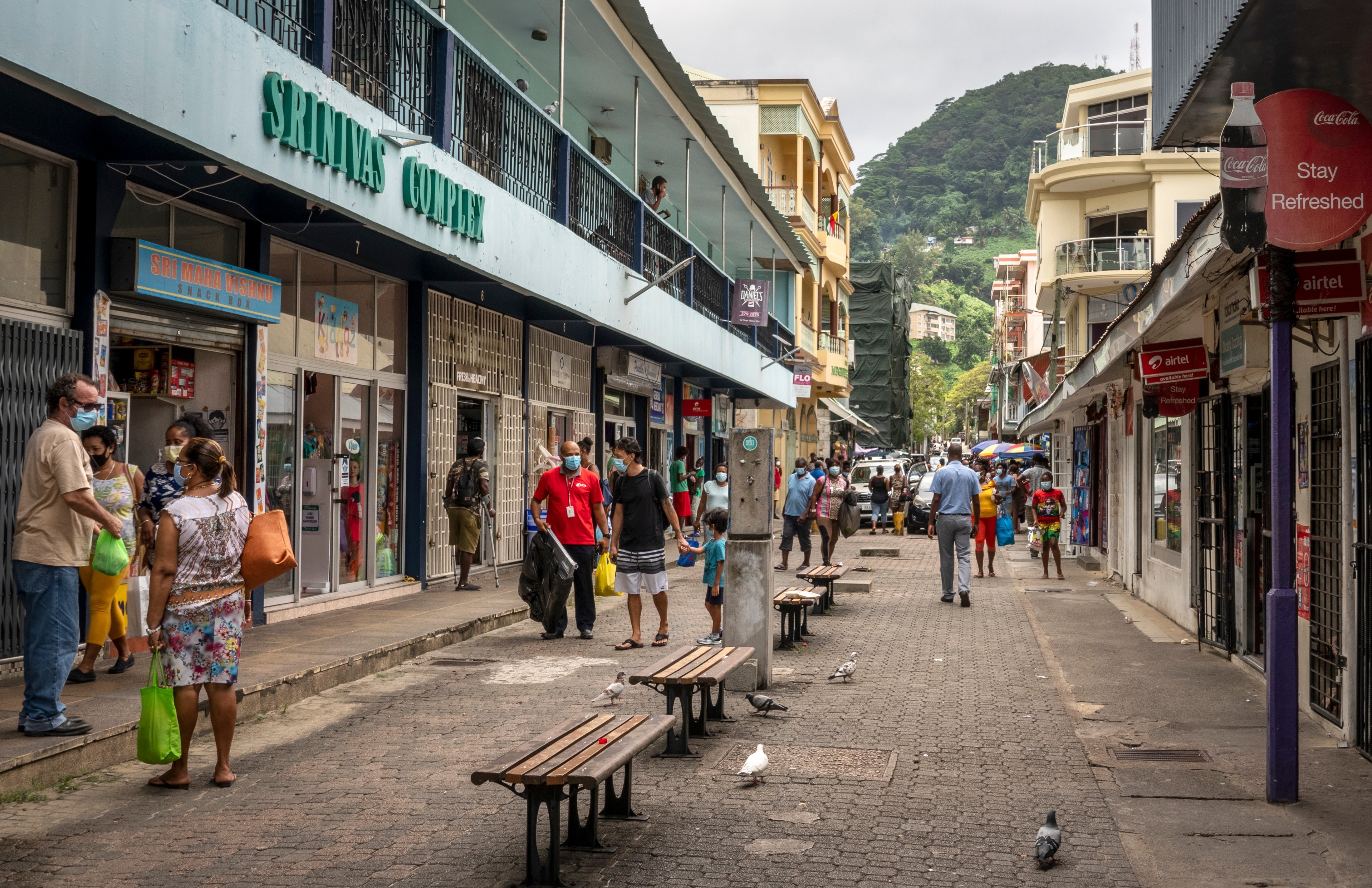Seychelles bids to reach COVID 'herd immunity' by mid-March
The president of Seychelles says he hopes enough residents will soon be vaccinated against COVID-19 to stop the spread of the virus

Your support helps us to tell the story
From reproductive rights to climate change to Big Tech, The Independent is on the ground when the story is developing. Whether it's investigating the financials of Elon Musk's pro-Trump PAC or producing our latest documentary, 'The A Word', which shines a light on the American women fighting for reproductive rights, we know how important it is to parse out the facts from the messaging.
At such a critical moment in US history, we need reporters on the ground. Your donation allows us to keep sending journalists to speak to both sides of the story.
The Independent is trusted by Americans across the entire political spectrum. And unlike many other quality news outlets, we choose not to lock Americans out of our reporting and analysis with paywalls. We believe quality journalism should be available to everyone, paid for by those who can afford it.
Your support makes all the difference.The president of Seychelles says he hopes enough residents will soon be vaccinated against COVID-19 to stop the spread of the virus in the Indian Ocean island nation.
Seychelles began vaccinations in January, and by the end of February, about 44% of those vaccinated had gotten a second shot.
“We are hoping to achieve herd immunity mid-March when we would have vaccinated 70,000 of our people,"" Seychelles President Wavel Ramkalawan told The Associated Press in an interview last week. "That represents 70% because our population is 100,000.”
So-called herd immunity is reached when enough people are protected through infection or vaccination to make it difficult for a virus to continue to spread. The exact threshold for coronavirus is unknown, although some experts suggest that at least 70% of a population would need to be protected to hold the virus in check. The emergence of new worrisome versions of the coronavirus, however, is further complicating the picture.
Since the pandemic began, Seychelles has had 2,592 confirmed cases of COVID-19, including 11 deaths, according to the Africa Centers for Disease Control and Prevention.
Seychelles’ first two positive cases of COVID-19 were confirmed on March 14, 2020. The two individuals were a couple from Seychelles who had returned from a trip to Italy.
The country imposed a nationwide lockdown in which most shops, businesses and schools were closed for 21 days in April. The airport was also closed and ships were prevented from bringing tourists.
Restrictions continue on public gatherings, restaurants and bars. Tourists flying to Seychelles are required to have recent negative PCR tests and have a 7-day quarantine period at a designated hotel and have a negative PCR test at the end of the restriction.
The 7-day rolling average of daily new cases in Seychelles has dropped over the past two weeks, going from 49 new cases per 100,000 people on Feb. 15 to 32 new cases per 100,000 people on March 1, according to figures from Johns Hopkins University.
Seychelles' vaccination drive started in January with 50,000 doses of Sinopharm vaccine donated by the United Arab Emirates, a close trading partner, according to the Seychelles News Agency. The Emirati carrier, Etihad Airways, has a substantial stake in Air Seychelles.
India donated 50,000 doses of the AstraZeneca vaccine made by the Serum Institute of India. The Seychelles government said it purchased an additional 40,000 doses of the AstraZeneca vaccine to have enough to inoculate 70,000 people.
The vaccines are voluntary and free. The shots have been given to senior officials, including the president, as well as health and tourism workers in a country where tourism accounts for about 30% of GDP, according to World Bank figures.
When the vaccinations started in January, health care workers, essential service workers and tourism workers were given priority. After those on the front-line were vaccinated, the elderly were given priority. The shots are given in hospitals, clinics, pharmacies and some businesses. Now all residents can get inoculated, except for those under 18 years.
The publicity surrounding the vaccination drive has helped to dispel misinformation about the shots, according to medical workers.
“The moment we started giving out the vaccines to leaders, religious leaders and health workers, that started to subside,” said Sanjeev Pugazhendi, a doctor with the Ministry of Health.
Subscribe to Independent Premium to bookmark this article
Want to bookmark your favourite articles and stories to read or reference later? Start your Independent Premium subscription today.